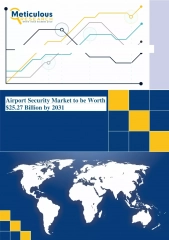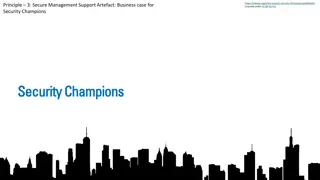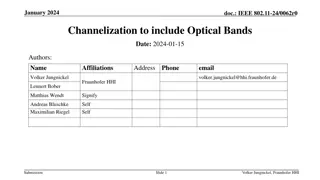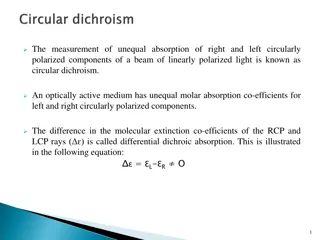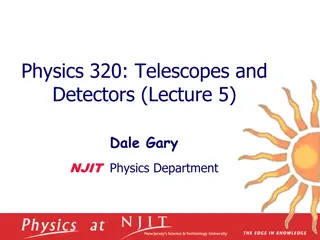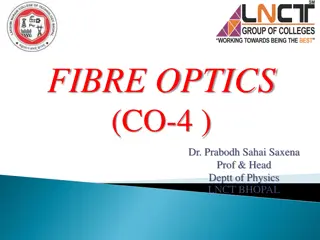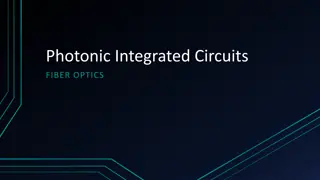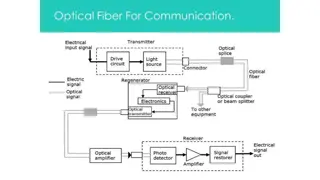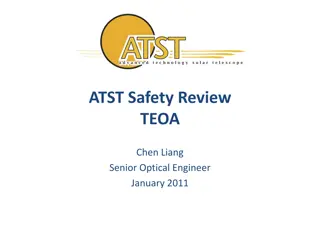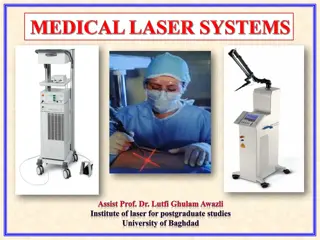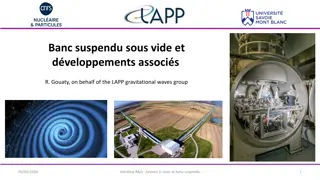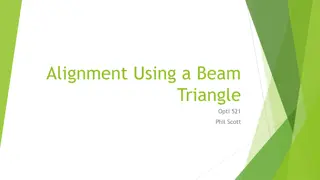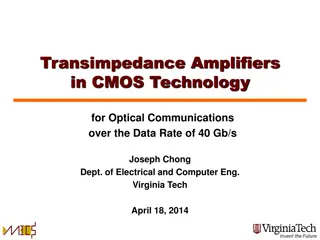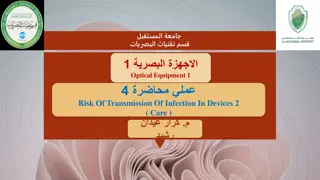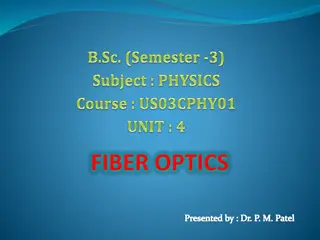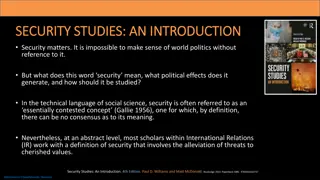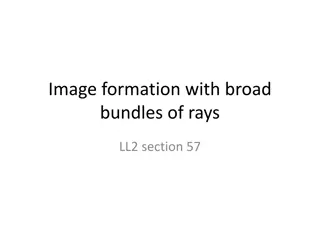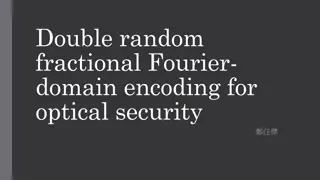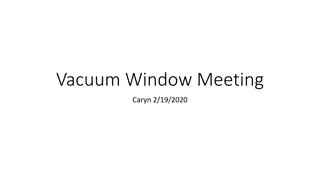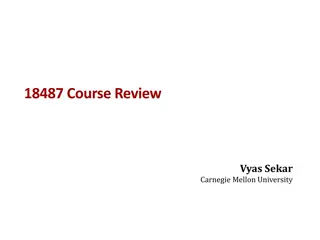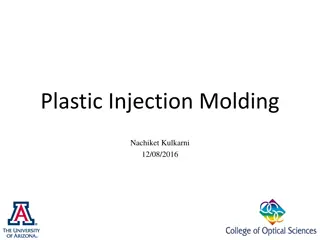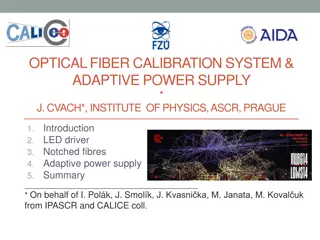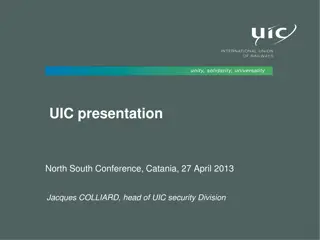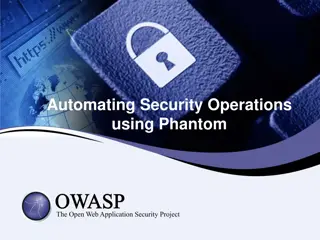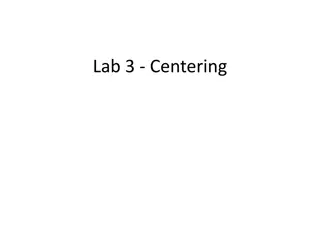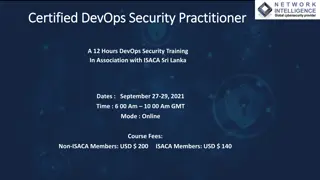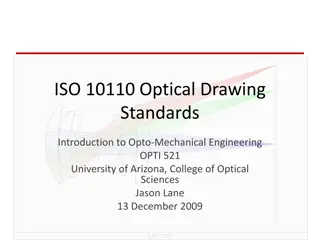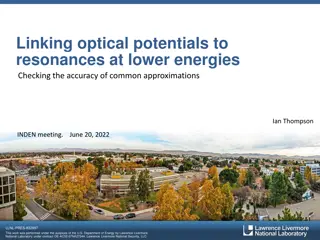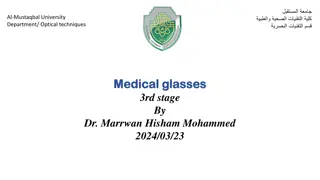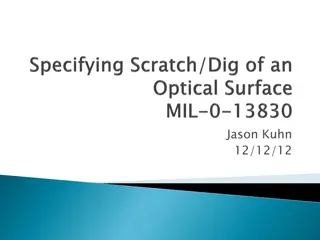Airport Security Market to be Worth $25.27 Billion by 2031
\u00ae, the airport security market is projected to reach $25.27 billion by 2031, at a CAGR of 8.6% from 2024 to 2031. Some of the major factors driving the growth of this market are stringent government regulations for airport security and the growing number of air passengers. In addition, increasi
6 views • 5 slides
KEERTHI SECURITY - Best Security Agencies In Bangalore
Keerthi Security is a security and facility management services provider in Bangalore. We are committed to offering top-notch security services for commercial and residential places. We aim to offer very secure and reliable security services to everyone. Our best-trained security guards are very sha
9 views • 11 slides
Sens Security Your Premier Personal Security Firm
In a world where personal safety cannot be taken for granted, Sens Security stands out as Melbourne's leading personal security firm. Our services are designed for those who demand the utmost in protection, whether you're a high-profile personality, a top executive, or an individual with unique secu
0 views • 6 slides
Sens Security Your Premier Personal Security Firm
In a world where personal safety cannot be taken for granted, Sens Security stands out as Melbourne's leading personal security firm. Our services are designed for those who demand the utmost in protection, whether you're a high-profile personality, a top executive, or an individual with unique secu
1 views • 6 slides
Sens Security Your Premier Personal Security Firm
In a world where personal safety cannot be taken for granted, Sens Security stands out as Melbourne's leading personal security firm. Our services are designed for those who demand the utmost in protection, whether you're a high-profile personality, a top executive, or an individual with unique secu
1 views • 6 slides
Understanding the Role of Security Champions in Organizations
Security Champions play a vital role in decision-making concerning security engagement, acting as a core element in security assurance processes within a team. They foster a security culture, reduce dependency on the CISO, and promote responsible autonomy and continuous security education in the org
3 views • 13 slides
Channelization to Include Optical Bands in IEEE 802.11 Standards
This document discusses the proposal to incorporate optical bands into the channelization framework of the IEEE 802.11 standard. It aims to align the channelization approach for integrated LC with that of mm-wave technology in the IMMW scope. The contribution highlights recent works, emphasizing the
2 views • 11 slides
Understanding the Roles of a Security Partner
Learn about the roles and responsibilities of a Security Partner, including requesting changes to security roles, approving security requests, and initiating access requests. Explore the overview of Workday Security, the security access request process, and the pre-request process flow. Discover how
1 views • 17 slides
Optical Properties of Optically Active Compounds
Circular dichroism and optical rotatory dispersion are important techniques for studying the optical properties of optically active compounds. Circular dichroism measures the differential absorption of left and right circularly polarized light components, while optical rotatory dispersion studies th
0 views • 17 slides
Understanding Optical Telescope Types and Lens-Maker's Formula
Optical telescopes utilize lenses or mirrors to collect and focus light for imaging celestial objects. The lens-maker's formula is crucial for determining the focal length of lenses, considering factors like index of refraction and radii of curvature. Different lens configurations and materials help
0 views • 17 slides
Overview of Optical Fibre Technology and Applications
Optical fibre technology, spearheaded by Dr. Prabodh Sahai Saxena, revolutionizes communication systems through light transmission. This cutting-edge technology utilizes fibre optics made of glass or plastic to carry light signals, offering advantages like high bandwidth, low signal loss, and no ele
0 views • 20 slides
Evolution of Optical Technology: From Telegraph to Photonic Integrated Circuits
The journey of optical technology evolution spans from the invention of the telegraph in 1836, through the introduction of optical fibers in 1978, to the development of photonic integrated circuits in the present era. Key milestones include the advent of optical amplifiers in 1990, the emergence of
0 views • 70 slides
Fiber Optic Communication System Overview
This article presents a detailed explanation of a point-to-point fiber optic communication system, outlining the process from voice conversion to signal transmission and reception. It discusses the advantages and limitations of optical communication systems, along with numerical examples related to
5 views • 11 slides
Optical Equipment Safety Review and Hazard Analysis
This document provides an in-depth review of the safety considerations for the ATST optical equipment, focusing on potential hazards associated with the M2 Mirror, Heat Stop Assembly, and other critical components. The Preliminary Hazard Analysis identifies various risks, causes, and recommended act
0 views • 13 slides
Overview of Laser Delivery Systems for Surgical Procedures
Institute of Laser for Postgraduate Studies at the University of Baghdad, led by Assist. Prof. Dr. Lutfi Ghulam Awazli, focuses on laser delivery systems in surgical procedures. The systems discussed include optical fibers, articulated arms, hollow waveguides, and free beams. Optical fibers, compose
0 views • 10 slides
Understanding Optical Storage Technology
Optical storage technology originally designed for audio offers a capacity of 650MB, providing over 70 minutes of audio playback. Data is recorded digitally on a polycarbonate disk's surface as microscopic pits. The disk is organized in a spiral track with sectors of the same length arranged in bloc
5 views • 16 slides
Advances in Optical Bench Technology for Gravitational Wave Detectors
This content discusses the latest advancements in optical bench technology for gravitational wave detectors, focusing on precise measurements of back-scattered light, development of new optical cavities, and testing of Sagnac interferometers. Key objectives include improving suspension controls, red
0 views • 13 slides
Optical Alignment Using Beam Triangle Opti 521 Phil Scott
This presentation delves into the intricate process of optical alignment using a beam triangle, focusing on defining optical and mechanical axes, addressing alignment challenges, degrees of freedom for various elements, and the importance of setting up a beam triangle for accurate alignment. The con
0 views • 14 slides
Transimpedance Amplifiers in CMOS Technology for Optical Communications at 40 Gb/s
This research by Joseph Chong at Virginia Tech delves into the use of transimpedance amplifiers (TIAs) in CMOS technology for optical communications operating at a data rate of 40 Gb/s. The study outlines the motivation behind the project, the role of TIAs in optical receivers, TIA circuit topologie
0 views • 52 slides
Proper Care and Maintenance of Optical Equipment to Prevent Infections
Regular examination and proper cleaning of tonometer prisms are essential to reduce the risk of transmitting infections during eye examinations. Disinfection and sterilization processes are crucial in maintaining optical equipment hygiene. Different disinfectants and physical methods can be used to
0 views • 24 slides
Optical Frequency Interferometer Bench Analysis
Detailed examination of the optical setup for an Optical Frequency Interferometer (OFI) system, including the input/output configurations with various optical components such as prisms, crystals, and wave plates. The analysis focuses on the path and behavior of beams within the system, considering r
0 views • 14 slides
Evolution of Optical Fiber Technology
Optical fiber technology has a rich history starting from John Tyndall's demonstrations in 1870 to the development of flexible fiberscopes by Hopkins and Kapany. This technology revolutionized communication systems and medical diagnostics, enabling the transmission of information through thin glass
0 views • 85 slides
Understanding Security in World Politics
Security studies delve into the intricate processes of defining and addressing security threats in global politics. It explores the contested nature of security definitions, emphasizes the political significance of security, and challenges the conventional boundaries of International Relations. The
0 views • 8 slides
Optical Image Formation: Principles and Conditions
Understanding the principles and conditions governing optical image formation, including the role of broad bundles of rays, wave surfaces, magnification ratios, and axially-symmetric optical systems. Explore the conditions for imaging line segments, optical path lengths, and the general criteria for
0 views • 13 slides
Optical Security with Double Random Fractional Fourier Domain Encoding
Utilizing double random fractional Fourier domain encoding for optical security involves encryption and decryption methods based on the fractional Fourier transform of various orders, involving specific mathematical operations and notations. The process includes transforming the input function, encr
0 views • 13 slides
Optical Testing Setup Procedures for Vacuum Windows and Polarizers
Detailed procedures for optical testing setups involving vacuum windows, polarizers, rotation stages, translation stages, photodiodes, scopes, power meters, and more. The process includes preparing the initial state, rotating analyzers, monitoring transmission, and verifying the direction and magnit
0 views • 5 slides
Comprehensive Course Review: Security Research Cornerstones at Carnegie Mellon University
Dive into the essential topics of software security, network security, OS security, and cryptography in the course offered by Vyas Sekar at Carnegie Mellon University. Explore control flow hijacks, cryptography terminology, and the importance of network security in protecting data transmissions. Lea
0 views • 41 slides
Understanding Plastic Injection Molding for Optical Components
Plastic injection molding is a cost-effective method for mass-producing optical components, offering an economical alternative to glass. This process involves designing molds, considering factors like shrinkage and surface equations, ensuring smooth mold flow, and regulating fluid flow through gates
0 views • 12 slides
Optical Fiber Calibration System & Adaptive Power Supply by J. Cvach
Introduction to an optical fiber calibration system and adaptive power supply developed by J. Cvach from the Institute of Physics, ASCR, Prague. The system includes an LED driver, notched fibers, and adaptive power supply for various applications, such as the calibration of the CALICE AHCAL and LHCb
0 views • 13 slides
UIC Security Division Overview and International Activities
The UIC Security Division plays a crucial role in supporting the security platform of the International Union of Railways (UIC). Headed by Jacques Colliard, the division is based in Paris and consists of key personnel like Marie-Hélène Bonneau, Jos Pires, and Laetitia Granger. The division's activ
0 views • 12 slides
Automating Security Operations Using Phantom
Isabella Minca, an intern for 4 months in the Security Team at Adobe, presents an overview of automating security operations using Phantom. The presentation covers goals, security alerts, Phantom playbooks, handling security data, and the capabilities of Phantom in orchestrating security responses.
0 views • 28 slides
Lab 3: Centering Optical Elements & Systems with Precision
Centering optical elements and systems accurately is crucial for optical alignment processes. This lab focuses on using an air bearing rotary table and dial indicators to achieve precise centering. The equipment used includes PSM, displacement indicators, adjustment screws, and magnetic mounts. Prop
0 views • 14 slides
Understanding HTTP Security Headers for Web Apps
Explore the importance of HTTP security headers on web applications through a detailed breakdown of headers like HSTS, XFO, XSS, CSP, CTO, RH, and FP. Learn how these headers enhance security by instructing browsers on handling website content, preventing various attacks. Gain insights on configurin
0 views • 68 slides
Understanding Nonlinear Optical Processes in Semiconductors
Exploring the complexities of nonlinear optics in the perturbative and non-perturbative regimes, this research delves into the generation of harmonics, optical Kerr effects, and extreme nonlinear optical phenomena utilizing phase-controlled electromagnetic pulses. The work also investigates the inte
0 views • 15 slides
Modular Security Analysis for Key Exchange and Authentication Protocols
Explore the modular security analysis approach used to examine the security of key exchange and authentication protocols, focusing on the universally composable authentication with a global Public Key Infrastructure. The analysis involves splitting the system into smaller components, separately anal
0 views • 15 slides
Comprehensive DevOps Security Training Overview
This Certified DevOps Security Practitioner course provides a deep dive into implementing DevSecOps, integrating security into the DevOps processes. Covering topics like security testing, Docker security, automation, and more, the training aims to equip participants with the necessary skills to embe
0 views • 5 slides
Understanding ISO 10110 Optical Drawing Standards
ISO 10110 Optical Drawing Standards provide guidelines for preparing drawings of optical elements and systems, essential for interpreting optical drawings accurately. The standard includes 13 parts covering aspects such as material imperfections, surface form tolerances, and more. Compliance with IS
0 views • 17 slides
Exploring Optical Potentials and Resonances at Lower Energies
Investigating the accuracy of common approximations in linking optical potentials to resonances at lower energies. The study focuses on neutron reactions with 14N as a test case, transitioning from R-matrix theory to Hauser-Feshbach models and evaluating known levels and level densities. Key topics
0 views • 22 slides
Understanding Decentration in Optical Techniques for Medical Glasses
Decentration in optical lenses refers to adjusting the optical center of the lens to align directly in front of the patient's eye. This process is necessary when the frame pupillary distance (PD) or the patient's PD differs. The formula for calculating decentration in single-vision lenses is provide
0 views • 16 slides
Understanding Surface Scratch Specifications in Optical Elements
This informative content delves into the specifications for surface scratches on optical elements, highlighting criteria such as scratch width, length limitations, and scratch density requirements. It explains how to evaluate compliance with these specifications using examples and images, emphasizin
0 views • 14 slides
